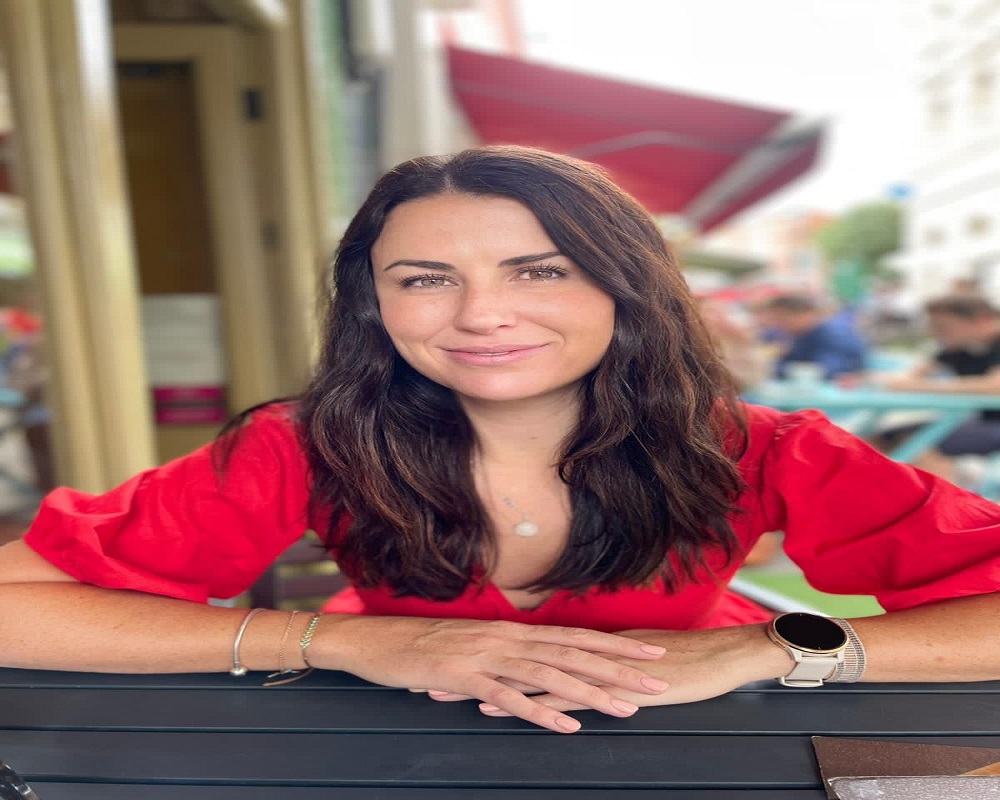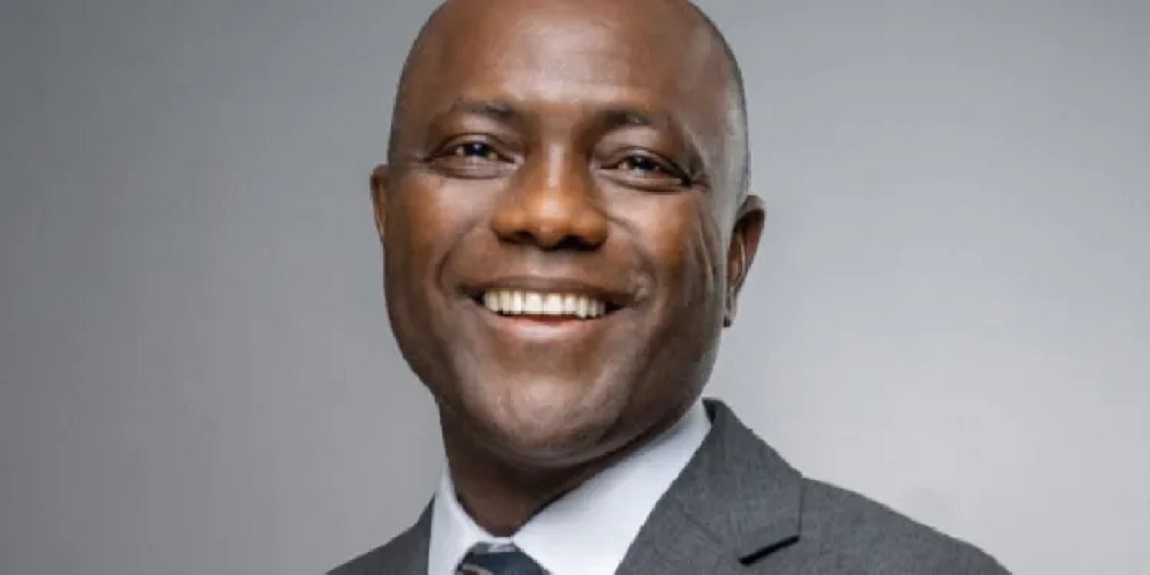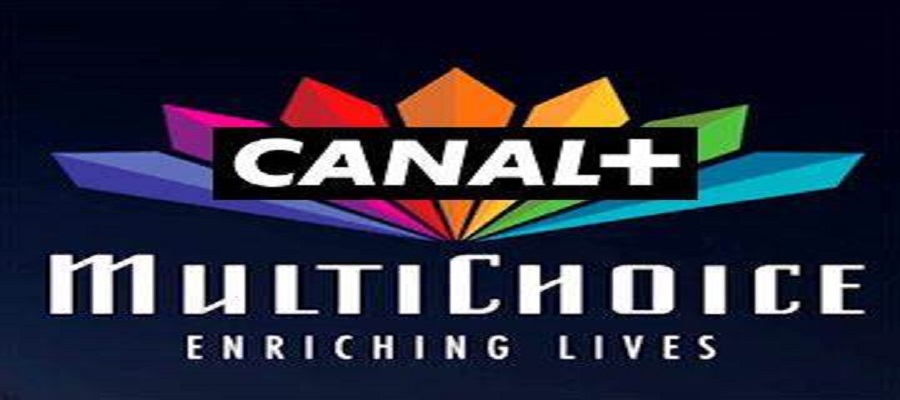Broadcasting
Why You Should Allocate Media Spend to Spotify

By Carla Harrison, East African Sales Manager, Ad Dynamo by Aleph
If I were to pick up your phone right now, there’s a very good chance that I’d find Spotify among your apps. It is, after all, the world’s most popular streaming service, with 433 million users (188 million of whom are paid subscribers) in 183 countries. Since its launch in 2008, it’s transformed the way the world listens to music and helped launch the careers of artists around the world.

And if you use Spotify, you’re probably also aware that it’s expanded from just music streaming into podcasting, with some 4 million podcast titles joining its library of 82 million songs. But did you know that it’s also a powerful advertising platform with a growing focus on the African continent?
Any brand that’s serious about expansion, particularly in high-growth markets such as Nigeria, simply cannot afford to ignore it.
The pros of radio, plus more
In order to understand what makes Spotify such an appealing platform for advertisers, it’s worth first reminding ourselves of the strengths offered by traditional radio. In general, for example, radio ads are more cost-effective than other forms. You can also get away with increased frequency, meaning that your message is more likely to stick.
Read Also:
Spotify offers all the benefits of radio advertising, plus more. With growing numbers of people listening to digital audio streaming every day, you’re guaranteed an active and engaged audience. At the same time, you’re also reaching them while they listen to what they love. And because Spotify’s targeting options are so advanced, your brand can reach specific people based on age, gender, music genre, and playlist. Unlike radio, Spotify guarantees 100% completed listens in its reporting. It can also provide metrics around which type of audience engaged with your ad and a companion banner which allows users to click through to a webpage.
The streaming service is an innovator in the advertising space too. Its 3D audio feature, for instance, allows brands to provide premium quality advertising through an immersive, dynamic, and sensory audio experience. As a result, listeners don’t just hear an ad, they feel it.
But Spotify offers more than just audio ads. It also allows brands to reinforce their messages with high-impact display and video ad formats. Spotify video ads are actually the best performing in the industry as they had to be built for viewability. The ads are 100% viewable, and 100% audible and Spotify only charges for 100% completion.
Making an impact in Africa
It’s also worth pointing out that Spotify is seeing significant levels of growth across Africa. While the streaming service has been available in South Africa since 2018, its real expansion into Africa only came in early 2021, when it launched in an additional 40 countries.
But just a year after launching in Nigeria, the number of artists streamed per user had grown by 60%, and Nigerian music fans had created 1.3 million user-generated playlists. Additionally, nearly 21 000 songs had been added to the platform, placing Nigeria as the country with the second most streams after Pakistan in the new markets, with Kenya third in the ranking.
That growth isn’t likely to slow down anytime soon either. According to Statista, music streaming revenues in Nigeria are expected to show an annual growth rate of 12.61% between 2022 and 2027. It’s also worth noting that penetration in the overall streaming market currently sits at just 4.1%. With an additional 35 million Nigerians set to come online by 2026 (all of whom will be hungry for the consumer experiences that come with affordable and ubiquitous access), Spotify looks primed for significant growth.
That comes with obvious growth benefits for advertisers, especially when you factor in that 39.6% of music streaming users are in the medium-income group. As Nigeria’s economy continues to grow, that income group will become larger and more valuable.
Partnering with the experts
Brands looking to utilise Spotify as a marketing platform don’t have to go in blind either. By working with experts that have specialist teams, they can get the most out of their campaigns. The right partners will also offer advertisers price transparency, ensuring that they get advertising on the platform at the most affordable rates.
In doing so, they can ensure that they always reach the right audiences at the right time, with the right message. Moreover, with Spotify they’re reaching people during the moments they love. And that’s always incredibly valuable for any marketer. Small wonder then that Spotify is seen as the most trusted ad platform among consumers. Factor in the brand safety it offers and you have a winning combination.
A culmination of factors
Ultimately then, Spotify represents the culmination of a number of factors that should be of interest to anyone with a media budget that needs to be spent. And as Africa, and Nigeria in particular, that combination of engaged active audiences, the ability to target specific audiences, and innovative advertising products will only become more important.
Broadcasting
Luft Pay TV Launches in Lagos, Promises to Revolutionize Entertainment

Luft Pay TV has officially launched in Nigeria’s Pay TV landscape, bringing a fresh perspective to home entertainment.

Officials of Luft Pay TV at the launch
The brand’s dynamic debut in Lagos recenlty, drew media executives, content creators, industry stakeholders, and entertainment enthusiasts.
Yemi Adebowale, head of Corporate Communications and Media at Luft Pay TV, emphasised the brand’s mission to simplify entertainment and provide real value. “Luft Pay TV is more than just another player in the market.
He said, “We’re here to simplify entertainment, eliminate confusion around billing, and provide real value with high-definition content that reflects both global quality and local identity.
Luft Pay TV’s standout feature is its all-in-one subscription model, offering over 35 premium channels for ₦7,500 per month.
The channel lineup includes Sports, Live sports action, Movies: Nollywood and Hollywood films as well as Kids’ Programming, Documentaries, Music and Lifestyle content.
“Decoder and STB Kit Prices: Decoder: ₦25,000 – Complete STB kit with accessories: ₦35,000. As a proudly Nigerian brand, Luft Pay TV is committed to promoting local storytelling through partnerships with indigenous content creators.
“This initiative aims to project African stories globally and provide an inclusive, affordable, and proudly African entertainment experience to Nigerians everywhere.”
Luft Pay TV has commenced nationwide installations across the six geopolitical zones, supported by a growing distribution network and robust customer service infrastructure.
This ensures a seamless user experience for subscribers
With its innovative approach and commitment to Nigerian talent, Luft Pay TV is poised to revolutionise the television experience in Nigeria.
Broadcasting
When Legacy Meets Preparedness – Olusegun Alebiosu as CEO, Firstbank Group

By Aniekan Ezekiel
What happens when legacy meets preparedness? What results from such a combination? Let us not be in a hurry to put forward any answers yet. Instead, let us consider first the opposite situation: When legacy meets unpreparedness.

The world abounds in examples of this distressing situation. A dynasty that has built wealth from generation to generation, with its illustrious heirs providing generational leadership, finds itself in a strange phase where an ill-prepared heir takes over the reins and in that same generation, not the next, wipes out the entire family fortune built over several generations.
We see the same thing with nations. History is replete with examples of great nations built by great leaders, which slid into oblivion when they were hit by arguably the greatest misfortune that ever befalls humanity – bad leadership. It is the reason American author and leadership expert John Maxwell asserts, “Everything rises and falls with leadership.”
As with nations, so with organisations. We see organisations that have thrived for decades and over several generations, get a new leader who is not prepared for such leadership, and the leader pushes the organisation to the brink of collapse.
Contrast this picture with the situation at Nigeria’s most enduring corporate organisation with the most amazing legacies of firsts, First Bank of Nigeria Limited, which witnessed a leadership transition about a year ago. Faced with a number of quality options in and outside the then management team, the decision-makers at the bank and its parent company FBNHoldings, now First HoldCo Plc, had to be clear-minded about who could become the new Chief Executive Officer of FirstBank Group.
Equally important as the need for continuity was the non-negotiable requirement for capacity to manage the ship of the 130-years-plus institution to sustain its enviable legacies and consolidate the gains made in recent years. The search was for someone with a steady head and hands (talk of risk control and mitigation), in addition to an excellent track record of sterling performance and achievements.
Fortunately, fate was on their side. They did not have to look outside. Right there before them was someone who understood all kinds of risks and how to control and mitigate them. He had been with FirstBank since 2016 when he joined as Group Executive / Chief Risk Officer. Then in January 2022 he was elevated to Executive Director / Chief Risk Officer and Executive Compliance Officer.
This man has given nearly three decades of his working life to the banking and financial services industry. He has under his belt a rich tapestry of cross-functional experience in credit risk management, financial planning and control, credit and marketing, and trade. His cross-functional exposure also includes corporate and commercial banking, agriculture financing, oil and gas, transportation, including aviation and shipping, and project financing
Meet Olusegun Alebiosu, the man history had prepared and the one decision-makers chose among the quality options. He was appointed substantive Chief Executive Officer of FirstBank Group in June 2024, having acted in that capacity since April 2024 when the former CEO left.
Determined to build on the bank’s legacies while navigating the ever-changing landscape of the financial services industry, Alebiosu has shown unwavering commitment to lead the bank through a transformative period that places emphasis on strategic consolidation, technological advancement and market expansion.
Alebiosu’s approach to sustaining the legacies of firsts at FirstBank, which has been at the vanguard of accelerating Nigeria’s digital payments as the first bank to issue over 13 million cards to customers, draws from his vast professional experience which began with Oceanic Bank Plc, now Ecobank Plc, in 1991. Between then and joining FirstBank in 2016, he had worked at Coronation Merchant Bank as Chief Risk Officer, at African Development Bank Group as Chief Credit Risk Officer and at United Bank for Africa as Group Head, Credit Policy and Deputy Chief Credit Risk Officer.
Under one year of his appointment as substantive CEO of FirstBank, Alebiosu’s strategic consolidation efforts have demonstrated that he is a worthy successor, not an ill-prepared or unprepared one, proving the decision-makers right. Understanding the critical role of its human capital in sustaining the bank’s legacies, Alebiosu has invested himself and the bank’s resources in promoting staff welfare.
A comprehensive review of the bank’s compensation structure was undertaken to position it within the 75th percentile of the industry, making the bank more retentive of, and attractive to, the best talents. The highest number of staff promotions across various grades in the last five years has happened under Alebiosu’s watch, with 1,654 employees being elevated in one single promotion cycle.
Under his leadership, over 2,186 new hires have been recruited across key functions and subsidiaries, with a large number of them deployed to the sales function to ensure that retail customers are adequately served. Staff are now more engaged based on the high employee engagement score of 86% achieved in the April 2025 WorkBuzz survey, indicating remarkable progress in the bank’s multi-pronged efforts to promote a positive and inclusive workplace culture.
This drive to reinforce a culture of inclusion and recognition has been accentuated by the launch of a group-wide culture transformation initiative with the goal of embedding the core values of integrity, excellence and innovation. It has also been strengthened by a renewed focus on inclusion, collaboration and high performance. Also contributing was the staging of a FirstBank Employee Appreciation Day 2025 featuring, among others, a personalised appreciation video message from the CEO to all employees across the group throughout Africa and beyond. The inclusion message is further boosted by the launch of the inaugural edition of the bank’s pioneering initiative, Mandarin Language School, to bolster the bank’s expansion in the Asian market.
Expansion is a critical plank in FirstBank’s new strategic planning horizon, under Alebiosu’s leadership. Taking off this 2025, the plan seeks to reinforce the bank’s market dominance across all operational regions and it includes deliberate expansion into new markets within and outside Africa.
Beyond geographical and horizontal expansion, Alebiosu’s plan has also targeted a skyward expansion. Or how else does one describe the groundbreaking ceremony in March 2025 for the bank’s new green-certified, 44-storey iconic head office building in Eko Atlantic City, Lagos State?
Alebiosu is also prioritising the acceleration of process automation in recognition of the importance of digital transformation. It is a massive push for technological advancement that includes adopting robotics technology and artificial intelligence at scale, to give the bank an unassailable competitive advantage among its peers in the industry.
The bank has deployed digital tools to enhance seamless account opening and optimised backend systems and customer service delivery. Two additional Digital Experience Centres (DXCs) have been launched – one at Lekki Admiralty Way, Lagos State and the other at its UNN branch, Nsukka, Enugu State. Also, the bank’s agent network has expanded to over 280,000, a 50,000 increase from the 230,000 agents it had in 2023.
As expected, shareholders, among other stakeholders, have been observing the strides the bank has been making under Alebiosu’s leadership, with a keen eye on the numbers. Fortunately, again, the bank’s results for the financial year ended December 2024 speak volumes, with after-tax profit of its parent company rising to the highest point it has reached in the last 12 years, according to the company’s latest financial statement.
In recognition of his achievements within such a short period and his exemplary leadership, Alebiosu was honoured at the World Business Outlook Awards as “Banking CEO of the Year – Nigeria 2025”. He has also been honoured with the “Special African Banking Leadership Award” by African Leadership Magazine. This was in 2024.
The story of Alebiosu’s leadership at FirstBank has clearly been one of preparedness meeting legacy. Working with the board and management team, he has consistently sustained the bank’s legacies and also consolidated its recent gains in ways that will ensure the gains keep compounding. FirstBank, more than ever before, is poised for greater intra- and intercontinental growth and impact in the years ahead.
Broadcasting
Canal+ Buyout Of South Africa’s MultiChoice one Step Closer

South Africa’s competition authority announced Wednesday it had approved the buyout of Africa’s largest pay TV enterprise MultiChoice by France’s Canal+, which wants to expand its footprint on the continent.

The merger, which has been in the works for nearly a year, needs the final go-ahead from the commission’s Competition Tribunal, it said in a statement.
Canal+ holds around 45 percent of MultiChoice’s shares and offered last year to acquire the remainder for 125 rand (6.16 euro) per share.
Canal+ is present in 25 African countries through 16 subsidiaries and has eight million subscribers, according to the French group.
MultiChoice operates in 50 countries across sub-Saharan Africa and has 19.3 million subscribers, it said.
It includes Africa’s premier sports broadcaster, SuperSport, and the DStv satellite television service.
“This is a major step forward in our ambition to create a global media and entertainment company with Africa at its heart,” Canal+ CEO Maxime Saada said in a statement.
The commission said its approval of the merger was subject to public-interest conditions worth about 26 billion rand over three years, including increasing the shareholding of people disadvantaged under South Africa’s white-minority apartheid regime.
It will also maintain the MultiChoice headquarters in South Africa.
A date for the Tribunal’s decision on the merger has not been announced but Canal+ said it was aiming for the deal to be completed by early October.

 News3 days ago
News3 days agoManager, Others Arraigned for Allegedly Hacking into Premium Trust Bank’s Server

 Telecom3 days ago
Telecom3 days agoMTN Nigeria Drags 20 Banks to Court over N6Bn Debt by SleekChip

 Telecom3 days ago
Telecom3 days agoAfrica Launches First Continental Space Agency

 E-Business3 days ago
E-Business3 days agoCAC, NIBSS Unveil Platform for Data Access to Private Firms

 News3 days ago
News3 days agoDBI Clocks 21, to Train 5m Workers

 Broadcasting3 days ago
Broadcasting3 days agoHow Automated Payments Can Reshape Savings Beyond Local Cooperatives

 General News3 days ago
General News3 days agoNITDA Takes IT Projects Clearance Campaign to Office of Accountant General, Others

 Telecom3 days ago
Telecom3 days agoMinister Decries High Rate of Nigerian Women Access Gap to Smartphones




























